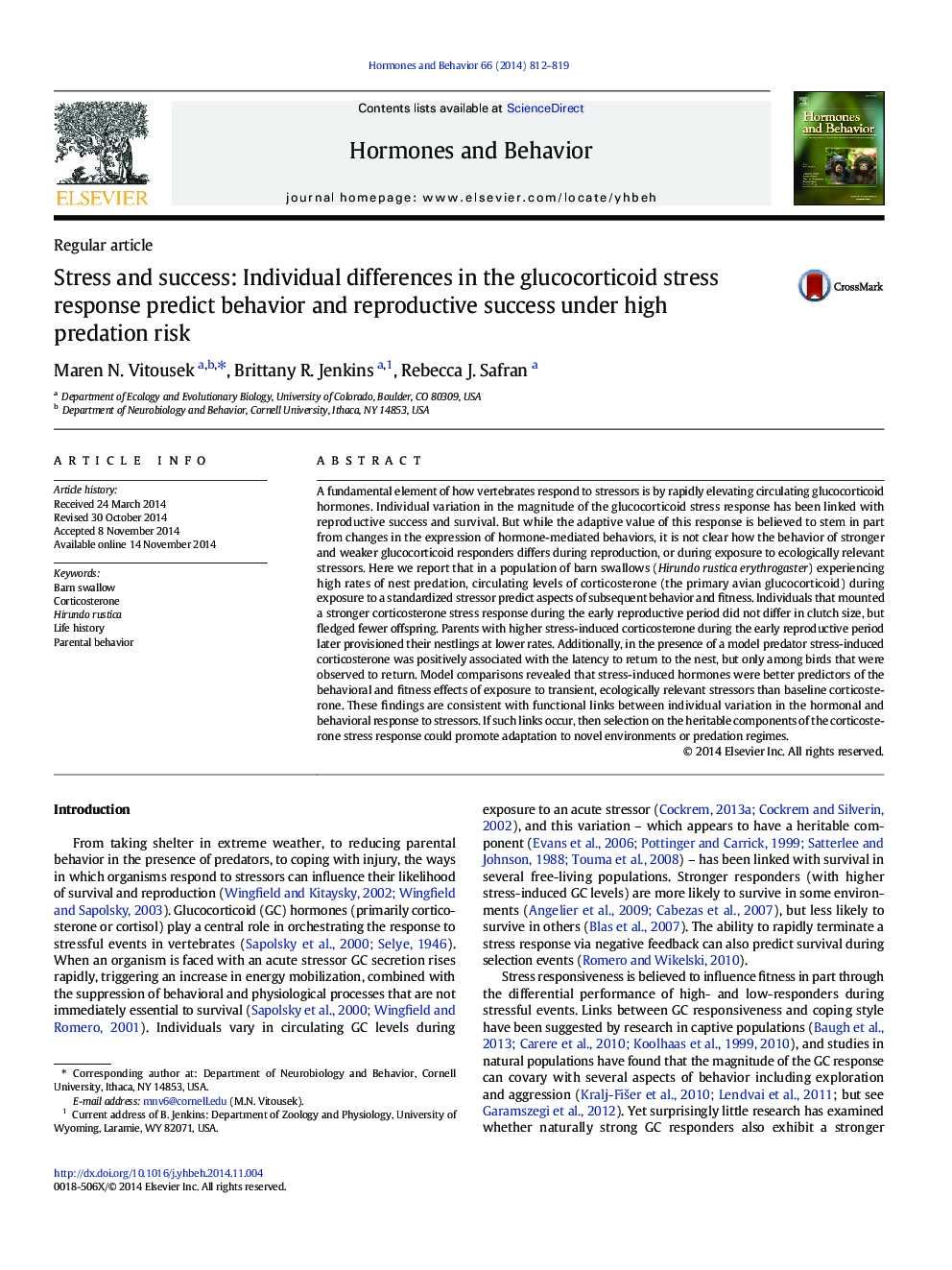| کد مقاله | کد نشریه | سال انتشار | مقاله انگلیسی | نسخه تمام متن |
|---|---|---|---|---|
| 322704 | 540215 | 2014 | 8 صفحه PDF | دانلود رایگان |
• Behavior and fitness were better predicted by stressed than by baseline hormones.
• Barn swallows with higher stress-induced corticosterone fledged fewer young.
• Birds with higher stress-induced corticosterone provisioned offspring less.
• Stronger corticosterone responders may reduce parental behavior more when stressed.
A fundamental element of how vertebrates respond to stressors is by rapidly elevating circulating glucocorticoid hormones. Individual variation in the magnitude of the glucocorticoid stress response has been linked with reproductive success and survival. But while the adaptive value of this response is believed to stem in part from changes in the expression of hormone-mediated behaviors, it is not clear how the behavior of stronger and weaker glucocorticoid responders differs during reproduction, or during exposure to ecologically relevant stressors. Here we report that in a population of barn swallows (Hirundo rustica erythrogaster) experiencing high rates of nest predation, circulating levels of corticosterone (the primary avian glucocorticoid) during exposure to a standardized stressor predict aspects of subsequent behavior and fitness. Individuals that mounted a stronger corticosterone stress response during the early reproductive period did not differ in clutch size, but fledged fewer offspring. Parents with higher stress-induced corticosterone during the early reproductive period later provisioned their nestlings at lower rates. Additionally, in the presence of a model predator stress-induced corticosterone was positively associated with the latency to return to the nest, but only among birds that were observed to return. Model comparisons revealed that stress-induced hormones were better predictors of the behavioral and fitness effects of exposure to transient, ecologically relevant stressors than baseline corticosterone. These findings are consistent with functional links between individual variation in the hormonal and behavioral response to stressors. If such links occur, then selection on the heritable components of the corticosterone stress response could promote adaptation to novel environments or predation regimes.
Journal: Hormones and Behavior - Volume 66, Issue 5, November 2014, Pages 812–819
